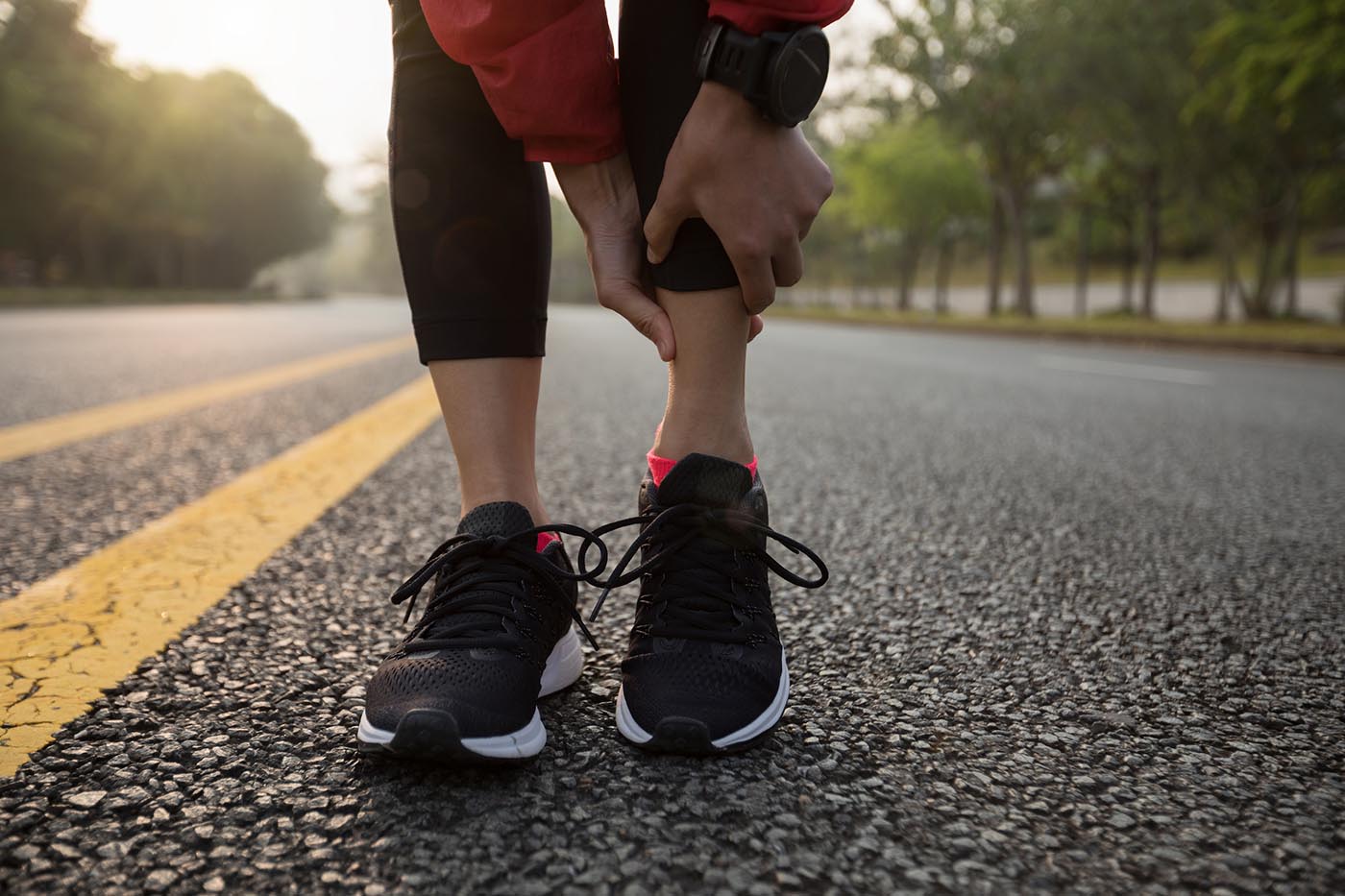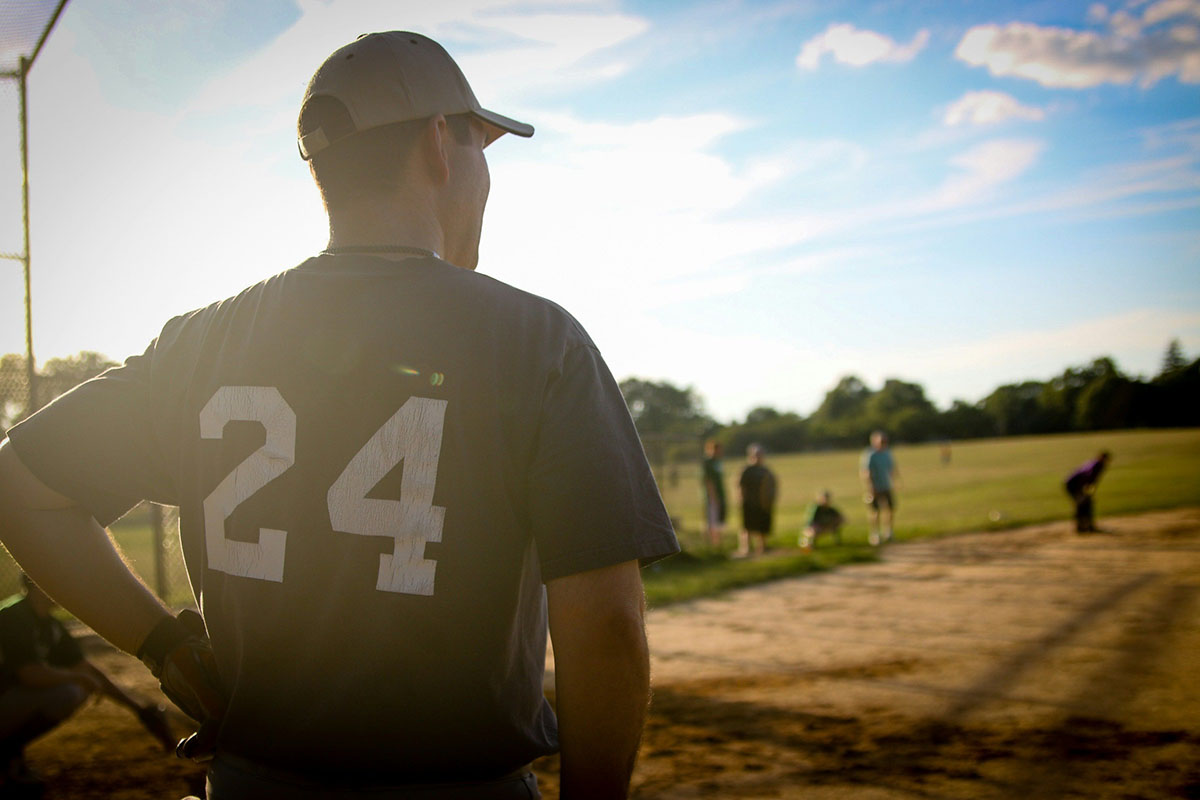When we think of sports leadership, we typically think of game strategy and motivational speeches—at…

A Deeper Look Into Athlete Injury: How To Cope With Post-Injury Depression
The truth is stark: as a high performance athlete, you’ll almost definitely experience some type of injury over the course of your competitive career. Not every sports injury will be significant, and not every one will mean you need to take a prolonged break from activity.
But some of them will.
Sports injuries that sideline high performance athletes can be difficult to deal with, both on and off the field. Post-injury depression is common; in one study, it was the most frequent diagnosis in the year after minor injury.1
So how can you cope with athlete injury?
Read on!
Understanding Post-Injury Depression
Sports injuries don’t always stop at the physical sensation—in fact, they usually don’t. Especially for high performance athletes, the mental health ramifications of injury can be just as difficult to cope with, if not more so.
Physical pain can, of course, make us pretty grumpy. It can keep us on edge and make us short-tempered with loved ones and strangers alike. Pain can be distracting, scary, and utterly exhausting in and of itself.
Being told that we must abstain from physical exercise in general can come with its own mental health impacts. We know that exercise can improve our moods2… But there’s also evidence that suddenly stopping physical activity that we’re used to can trigger depressive symptoms3.
This means that high performance athletes who are used to the positive mental health effects of regular physical activity are left prone to depression when they’re forced to stop because of injury.
Participation in physical activity is likely responsible for a bump in self-esteem4. We can lose that sense of self when we’re no longer able to be active.
And if our injury keeps us off the field and away from our friends and teammates, we can experience feelings of loneliness, isolation, and even low self-esteem, as we struggle with losing access to a sport that has played such a large role in our overall identity.
Studies have drawn a clear link between athlete injuries and post-injury depression—there’s an undeniable correlation between physical setbacks and a subsequent decline in mental health. This can even lead to poorer performance levels once the athlete returns to the sport.
This revelation is more than a statistic. It’s a call to action and a reminder that the rehabilitation process for athletes be focused on more than mending bones and torn ligaments. It should also encompass their emotional well-being.
Recognizing the relationship between physical injury and mental health is crucial to truly understanding and successfully navigating the post-injury experience.
How to Identify Post-Injury Depression
Depression can look different for everyone. For some, it may come as a persistent fog of sadness. For others, it may manifest as a loss of interest in activities they once loved—like their sport.
In the context of athlete injuries, these symptoms can be uniquely difficult to spot. The natural distress and frustration from an injury can easily overshadow the early signs of depression. Knowing what to look out for can make all the difference.
Depression due to athlete injury might include:
- Fatigue that’s disproportionate to the physical toll of the injury or fatigue that persists even with ample rest;
- Difficulty concentrating;
- Struggling to make decisions;
- Repeated errors, especially once the athlete has begun to return to training;
- Changes in appetite or weight;
- Problems with sleep, like insomnia or even oversleeping;
- Feelings of guilt or even low self-esteem; or
- Expressions of hopelessness, or excessive fear that they won’t be able to participate in their sport again, even with a promising prognosis.
Recognizing these symptoms is the first step in identifying and addressing post-injury depression.
Coping with Athlete Injury
Athlete injury and post-injury depression can be difficult things to deal with at any stage or competitive level. Beyond the physical pain, there are real mental health impacts to consider.
But if you or a loved one is facing the reality of athlete injury, there are things you can do to cope and come out stronger on the other side.
Choose Mindfulness and Improve Your Mind-Body Connection
Mindfulness strategies like meditation and relaxation techniques can help athletes combat post-injury depression. Activities like yoga or tai chi can also help rebuild a connection with the body, promoting both physical healing and mental resilience. Remember—the journey to mastering these strategies is one of patience and perseverance.
Maintain Social Connections and Self-Identity
Staying connected to your team and friends outside of your time on the field is crucial for emotional support and to combat feelings of isolation. Pair this with exploring new interests or rediscovering old ones to create a balanced sense of yourself. Being an athlete is just one facet of who you are; this is a great time to reacquaint yourself with the other parts, as well!
Focus on Overall Physical Health
A well-structured and evidence-based rehabilitation program and gentle, strengthening exercises can help maintain fitness levels, boost morale, and crowd out feelings of restlessness or stagnation. Coupled with a balanced, nutrient-rich diet, these physical strategies can speed up recovery and improve your mental health.
Set Yourself Up for a Healthy Return
Returning to your sport should be approached mindfully, with both physical readiness and mental resilience. Sports psychologists can help overcome fear of re-injury while a thoughtful, phased return can help rebuild confidence. And continue the mindfulness and overall health practices you adopted during your recovery! They’ll be just as helpful now as ever.
Seek the Support of a Professional Sport Psychologist
A qualified clinical sport psychologist can help you navigate the rocky waters of recovery, any post-injury depression, and—eventually—your triumphant return to the playing field! Don’t hesitate to reach out and book that first consultation.
Embrace the Journey
Athlete injury and post-injury depression can test an athlete’s resilience—there’s no denying that they’re difficult! But they also provide an opportunity for personal growth and deepening appreciation for your body and your sport.
Remember that every step forward (no matter how small!) brings you closer to recovery and a more resilient mindset for the future.
Navigating the Journey of Athlete Injury and Post-Injury Depression
The journey of a high-performance athlete marked by passion and resilience… And often injury, too.
Those injuries can feel like they cast a long shadow over an athlete’s career or future potential, and they can be a struggle to navigate.
With focus, intention, determination, and self-compassion, athletes can overcome injury and post-injury depression—and emerge stronger than ever!


